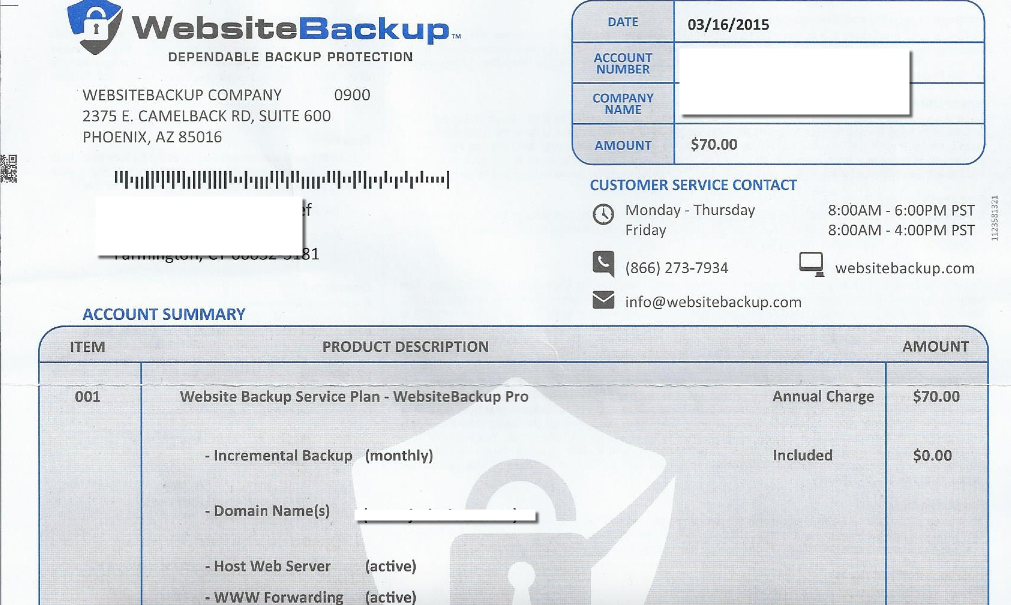Have you recently received an invoice from a company called WebsiteBackup? This is the latest scam by (and I hate to use the word company) less than honest people preying on website owners.
They send out invoices to you with your name, address and website for $70. They claim it is for website backup services. It looks official but it is in fact fake.

Now, this “company” may be providing a real service. It is possible. I highly doubt it… but it is possible.
However, the practice of sending a solicitation that looks like an invoice is in fact illegal. It is also immoral.
In this piece of information off The Better Business Bureau website it explains the U.S. Postal services requires any solicitation that looks like a bill, invoice or statement where money is due must contain disclaimers. They are required by law to make it clear that it is not a bill but is a solicitation.
So rest assured this company and ones like them are operating outside the law. Don’t pay them.
How to tell
The bottom line is you should ALWAYS vet everything you pay for. Question everything.
Companies like this expect you to receive the invoice and pay for it without thinking. And it probably works a lot judging from how many scams like this are out there. They must be lucrative.
One simple way to find out if something is a scam is to Google it plus the word “Scam”. If you Google “WebsiteBackup Scam” you will find plenty of evidence that this is fake.
You should also call a trusted resource. In this case, you should start with your web provider.
The images I show above are from a real client who hired us for Internet Marketing services. He simply called and asked about it. I’ve protected his identity in the images.
If you have no one to call, at least start by inquiring with your domain registrar or webhost. These places should be able to help you.
This is widespread
This isn’t just isolated. Scams like these spread across media. From email, direct mail like this and telemarketing. Whatever ways criminals can think to steal from you, they will.
Your credit card company will never call you and ask for your credit card number. They already know it.
They might call to tell you they are sending you a new card because of fraud they detected. But that’s about the extent of it.
Microsoft will never in a million years call you to tell you there’s a problem with your computer.
Don’t click on links in an email to update financial information. If Verizon Wireless sends you an email, without you requesting it, saying you need to click a link to update your account; don’t.
Either login to your account and check to see if there are notifications or call them and ask. You might be surprised to learn the email was not from them.
If any company, whether it is one you are familiar with or not, calls you, mails or emails asking for you to do something involving money or access, even if they sound legit, ask for their extension. Then call back that company on their main, known phone number.
Always question these things. Always.
I’ve also shared the details in this video and on my podcast in the hopes you will share this with others. We need to all band together to spread the word and expose frauds like this.